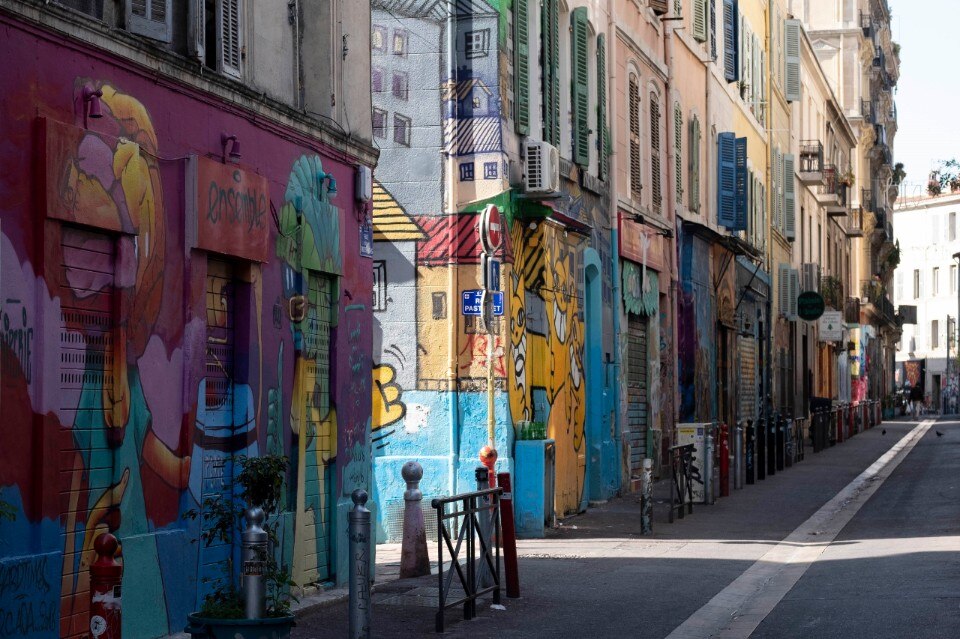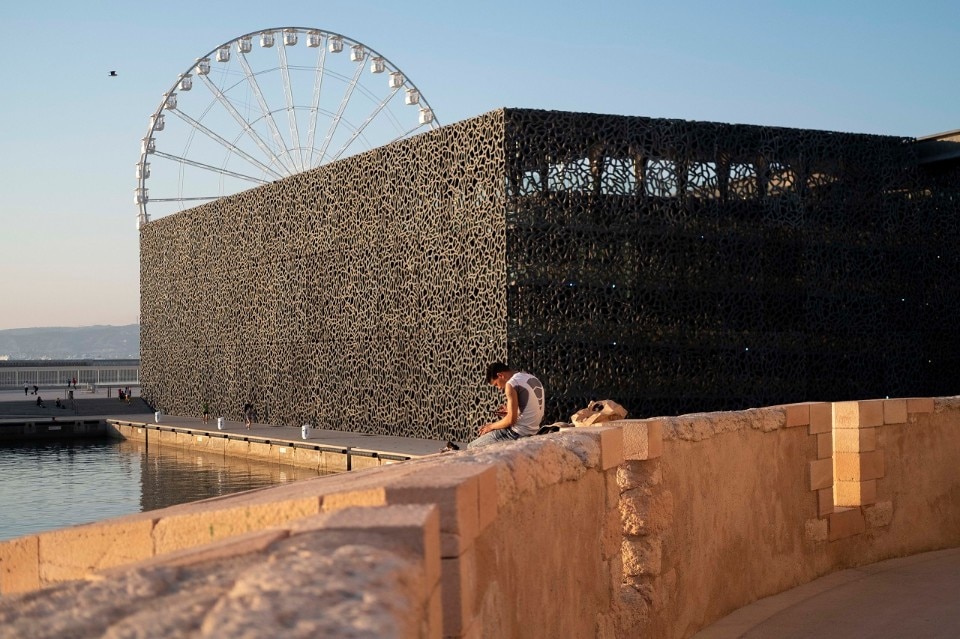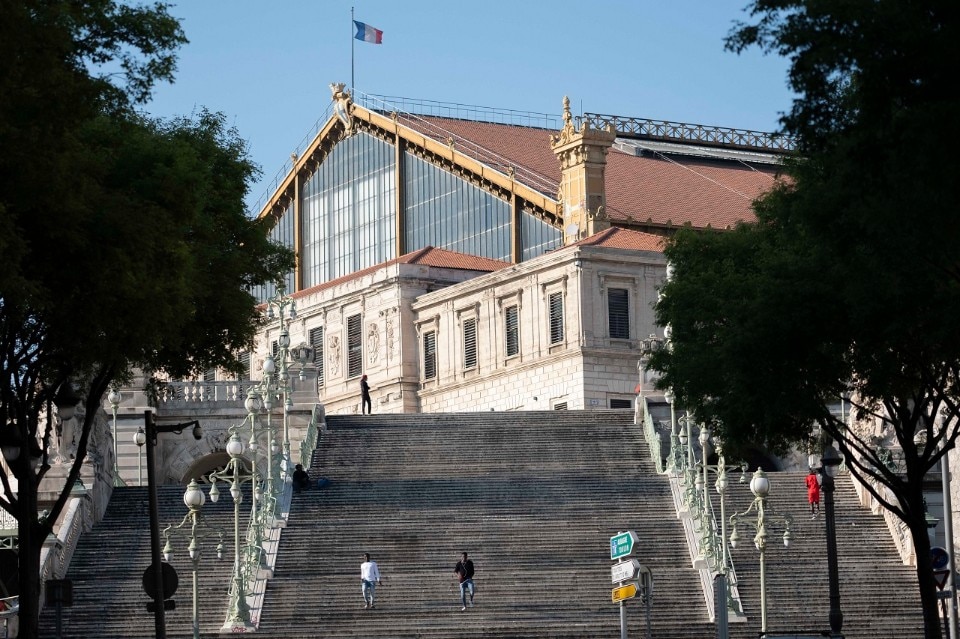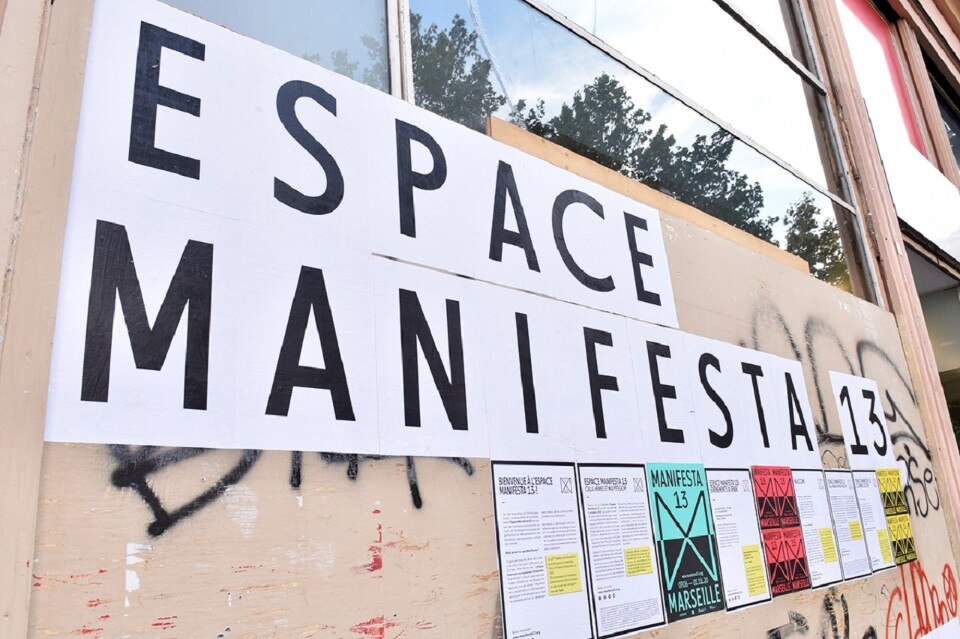The European Nomadic Biennial (started in 1993), under the direction of Hedwig Fijen, has developed into the fourth largest biennial in the world. Today, instead of the original plan, of starting in the beginning June 2020, Manifesta 13 Marseille is going to take place between 28 August and 29 November 2020. It is going to unfold gradually, with different dates for the launch of each initiative that composes either of the three fronts of this edition: Traits d’union.s (Traits d’union.s includes 47 artists, and is divided into 6 narratives: The Home, The Refuge, The Almshouse, The Port, The Park and The School), Le Tiers Programme , and Les Parallèles du Sud. The central exhibition, the educational and mediation programme, and the parallel programme, the three of them are considered equally important to give this edition a pivotal imprinting.
From 28 August, each exhibition space and/or event will launch at a different date, over a period of almost two months and, from October 9, all parts of the exhibition will be open and can be visited simultaneously (until November 29, 2020). For its first edition in France, Manifesta will take place in Marseille and France’s Région Sud.
Manifesta 13 is working closely with many of Marseille’s most prominent institutions, including Musée Cantini, Centre de la Vieille Charité , Musée Grobet-Labadié , Muséum d’Histoire Naturelle , Musée des Beaux- Arts, Musée d’Histoire de Marseille and Conservatoire National à Rayonnement Régional de Marseille.
We addressed Hedwig Fijen few questions about features and beacons the new edition will be fostering.

Which kind of measures and precautions are you adopting in order to keep the venues of Manifesta safe when it comes to Covid-19? The safety measures applied will follow the recommendations in place by ICOM and the Museums of France, in close collaboration with our partner the Musées de la Ville de Marseille, and the precious help of its director Xavier Rey along with its chief contemporary art curator Thierry Ollat, who have been guiding us very precisely in what we can or cannot do. Despite the social distancing we still want the project to give the idea of connection. In that way, we hope that Espace Manifesta 13 can still have a communal function as it is located in the most central part of Marseille, La Canebière, welcoming both local people and projects.
Manifesta as an organisation really wanted to outsource the use of the space for social purposes. Furthermore, we are thinking about a more intimate welcome by rethinking the format of the guided tours for example, at Espace Manifesta 13, but also at the Tiers QG, the Education and Mediation space that has been showing a series of exhibitions and events as part of the Invisible Archives project. For each project we hope to find a suitable and safe solution which is comfortable and acceptable for the artists and other participants.

Could you please formulate a brief message, a thought, about what makes this Manifesta edition special? The 13th edition of Manifesta is special as it goes even deeper than what we have initiated in Manifesta 12 Palermo in 2018, which is to be more locally rooted, to leave a legacy to the host city that would be not only material but also immaterial, and to open up our field of action into more interdisciplinary and societal projects rather than just organising a series of international exhibitions. Two of our three programmes are thus exclusively co-produced and co-created with cultural and social organisations from the host territory.

Manifesta 13 Marseille aims to build on from a basis of cultural participatory democracy, and that has started off with the commission of an urban study by an international architecture studio, MVRDV (together with the thinktank The Why Factory), and which had been discussed with citizens since its development.
So the city becomes completely involved…This global study devoted to Marseille, called Le Grand Puzzle, sought to forge strong links with many often-invisible communities, to mediate between their local and global narratives - too often ignored - and to interact with a variety of audiences through the perspective of Marseille’s complex and multiple histories.
The study gave way to conceptualise a pre-biennial programme including two emblematic projects: The Invisible Archives as part of Le Tiers Programme that aims to recognise and re-activate some extraordinary examples of community synergies in Marseille that are often invisible and unnoticed by institutions; as well as the citizens’ assemblies called “Le Tour de Tous les Possibles” by Tarek Ghezalli and Joke Quintens where they brought together citizens from various backgrounds to consider alternative ways, off the beaten track, to build their life together in the city, to strengthen bonds of solidarity and to forge unexpected alliances. With the 13th edition in Marseille, Manifesta has dug deeper into this new model seeking more democratic balance between local and international influences.
- Title:
- Manifesta 13 – Marseille
- Exhibition dates:
- From 28 August to November 29, 2020
- Curated by:
- Manifesta 13 central exhibition, Traits d’union.s , is conceived by the Artistic Team of Manifesta 13 Marseille: Katerina Chuchalina chief-curator of the VAC Foundation in Moscow, Stefan Kalmár director of the ICA in London and Alya Sebti, director of ifa gallery in Berlin. The education & mediation programme, Le Tiers Programme, led by Yana Klichuk (Manifesta’s permanent team member), and Les Parallèles du Sud , the parallel programme that expands through France’s southern region, and is led by Beatrice Simonet.
- Venues:
- Manifesta 13 is working closely with many of Marseille’s most prominent institutions, including Musée Cantini, Centre de la Vieille Charité , Musée Grobet-Labadié , Muséum d’Histoire Naturelle , Musée des Beaux- Arts, Musée d’Histoire de Marseille and Conservatoire National à Rayonnement Régional de Marseille.


